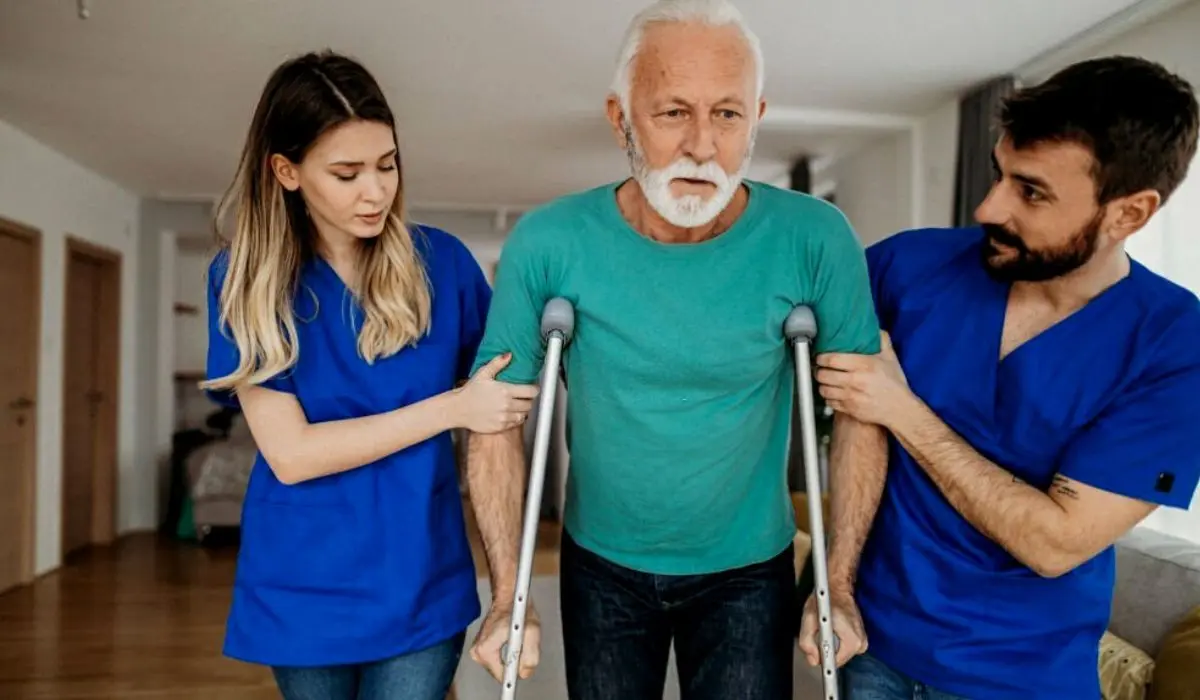Ageing is a natural aspect of life, and as we age, our bodies undergo significant changes. Unfortunately, one of the most challenging aspects of ageing is the increased risk of age-related injuries. From mild sprains to more severe fractures and joint issues, these injuries can range in severity.
The good news is that age-related issues can be overcome with an active and fulfilling lifestyle. Thus, this article discusses some common age-related injuries and their cause, along with ways to prevent them.
Common Age-Related Injuries
1] Osteoporosis And Fractures
Osteoporosis is a condition where bones weaken due to older age of individuals. Hip, spine, and wrist fractures are particularly common in older individuals with osteoporosis.

2] Arthritis
Another age-related injury can be Arthritis, in which joint disorder becomes more prevalent with age. The most common type of this condition is Osteoarthritis, which results in wear and tear of joint cartilage and can lead to pain and reduced mobility.
3] Falls
Elderly people frequently sustain injuries from falls. From mild bruising to catastrophic head injuries or fractures, they can cause anything. Falls are frequently caused by decreased muscle strength, balance issues, and visual problems.
4] Tendon And Ligament Injuries
Tendonitis and ligament sprains become more common as we age. Ageing can weaken tendons and ligaments, making them more prone to injury.
5] Back Pain
Older adults frequently complain of chronic back discomfort. Numerous conditions, such as spinal stenosis, degenerative disc disease and spinal stenosis.
Cause Of Age-Related Injuries
1] Chronic Health Conditions
Diabetes and cardiovascular disease can increase the likelihood of injuries and slow down the healing process. This can be managed by medications, customised exercise plans, dietary modification and stress management.
2] Joint Wear And Tear
Joint wear and tear over the years can result in injuries like osteoarthritis. Some of the stress on the afflicted joints can be reduced by using joint-supportive equipment, supportive equipment, such as knee braces or orthopaedic shoes.
3] Balance And Coordination Issues
Changes in the inner ear and nervous system can affect balance coordination, increasing the risk of falls. It can be improved by physical therapists who can design personalised exercises and routines to target balance and coordination.
4] Muscle Weakness
Sarcopenia, or age-related muscle loss, can result in decreased strength and stability, increasing the likelihood of falls. It can managed by strength training, balance and core exercise, a protein-rich diet, and adequate rest.
5] Reduce Bone Density
Osteoporosis and fractures are often the result of reduced bone density, which can be influenced by genetics, hormonal changes, and lifestyle factors like diet and physical activity.
Strategies For Overcoming Age-Related Injuries
1] Stay Active
The foundation of a healthy and injury-resistant lifestyle as you age is regular physical activity. Exercises like walking, swimming, or cycling can enhance bone density, muscle strength, and flexibility. Exercises that target the upper and lower bodies during strength training can support the maintenance of muscle mass and general physical function.
2] Fall Prevention
Older persons face a significant risk of falling. This can be managed by conducting a home safety assessment. Remove tripping hazards, secure handrails, and ensure adequate lighting. In order to increase stability and lower the danger of falling, think about balance training activities like heel-toe walking or one-leg standing.
3] Physical Therapy
Consider working with a physical therapist if you have sustained an age-related injury. In order to address particular problems, such as joint mobility, muscle strength, and balance, they might design a customised rehabilitation programme.
4] Mind-Body Techniques
Yoga and tai chi are exercises that help with both physical flexibility and balance as well as emotional well-being. They can improve body awareness, lessen stress, and enhance relaxation.
5] Medication Management
For individuals dealing with conditions like arthritis, proper medication management is crucial. Consult with your doctor to explore options for pain relief and inflammation control.
Read More:- The Impact Of Biomechanics Research On Sports Physical Therapy
Eliminate Age-Related Injuries And Assure A Healthy Lifestyle
Many seniors worry a lot about age-related injuries, but they don’t have to control how well they live in their later years. It is possible to overcome and even prevent these ailments with a proactive strategy that combines consistent exercise, a healthy diet, and preventive measures. Considering a holistic approach to health and well-being can help individuals enjoy their golden years with strength, vitality and independence.